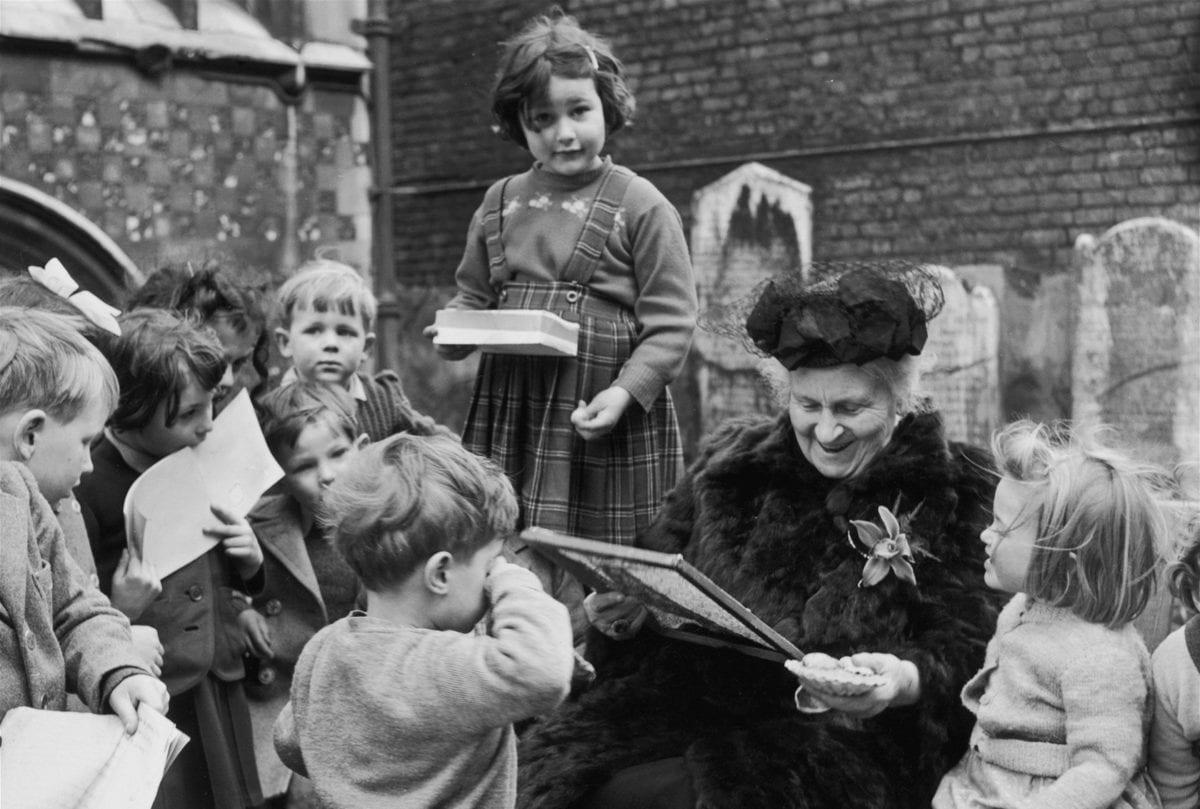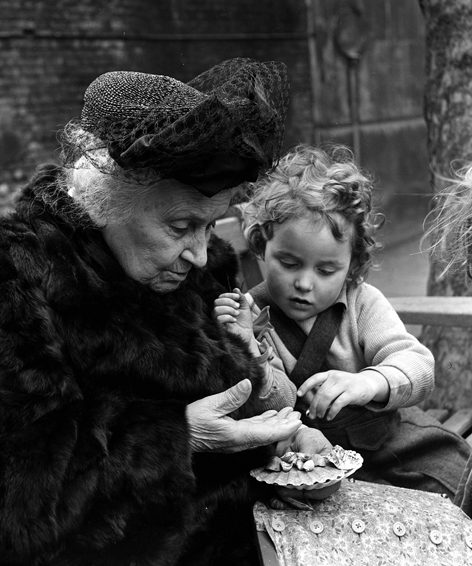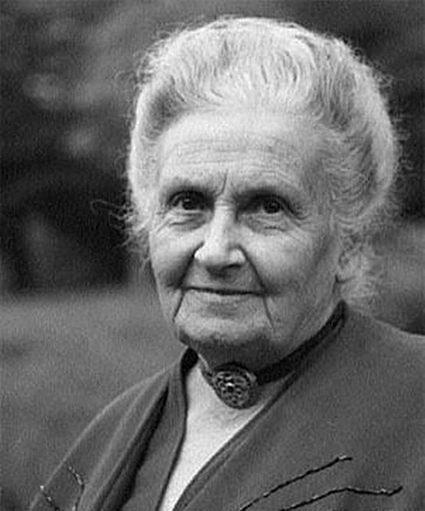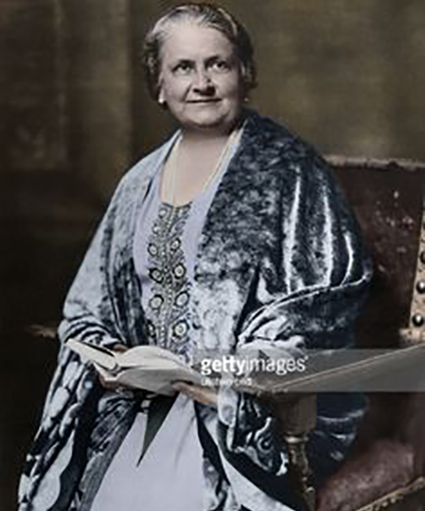

The Montessori philosophy conceives that in the child's self-construction is the formation of the man or woman who they will become in the future; believes in the value of learning processes, and in results and memorization as the outcome of understanding, repetition and self-perfection. Considers that grace and courtesy are fundamental to coexist in harmony, and therefore clear limits and logical consequences are established according to the age and maturity of the children; believes in freedom and will as the conquest of the development of free choice; believes in differences as elements that enrich us, in the rhythm of each child, of each person; believes in a cosmic vision where everything and everyone is interrelated, where meaningful knowledge is what we apply outside the classroom, in co-responsibility with our environment, in the community and in teamwork.
Dr. María Montessori always saw in education, AN AID FOR LIFE. We also consider that the most important education is the one that children receive from their parents, at home, and that the school accompanies them in this delicate work.
This proposal is for all types of children, but not for all types of families, since the full development of the children’s potential depends on the coherence and the consistency in educational priorities.
Give the child "the keys to the world"; "Children should have the experience for themselves with the world, so that they learn to value it as well as the people who live with it." Stimulating life, leaving it free to unfold: this is the educator's mission.
"Children should have the experience for themselves with the world, so that they learn to value it as well as the people who live with it."
Stimulating life, leaving it free to unfold: this is the educator's mission.


Dr. María Montessori founded in 1929 the International Montessori Association (AMI), in Amsterdam, Holland, in order to create a regulatory environment that would give continuity to her proposals.
The AMI has various functions, some of which are carried out at its own headquarters, and others around the world: it organizes International Congresses every two years; train coaches under the highest standards of professionalism and ethics; determines the type and quality of materials that must be present in every Montessori environment; issues newsletters biannually; examines, around the world, students who have been trained with AMI coaches; and as a regulatory body, all decisions on proposals, updates, modifications or innovations to the methodology are made in it, and the flame of the Montessori essence is kept alive: its philosophy.
There are Training Centers around the world endorsed by the AMI to train Guides at different levels, and the courses they teach are directed by authorized Trainers, whose programs faithfully reflect the line of work left by Dr. Montessori.
Dr. María Montessori left a detailed program where she relates the material, its presentation and the stage of development to which it belongs, within a logical sequence, ranging from zero to twelve years, that is, from birth and up to sixth grade. And for secondary, high school, and even university studies, she proposed environments with very particular characteristics, but not a definitive program, however the AMI has already developed a training for the Adolescents community, young people from 12 to 15 years of age approximately, who attend the high school stage.
In Mexico there are some AMI Trainers, who have trained many generations of Guides and Assistants, who have been in charge of many of our children throughout the country.
Montessori is not a franchise, nor is it a patented methodology, so unfortunately in Mexico any school can claim this name or quality, even if it has little or nothing related to the Montessori method and philosophy.
For the Montessori school community that believes in the strength, benefits and validity of this way of guiding the child, it is essential to work under the parameters of the AMI, hence the importance we give to receive the supervision of authorized Trainers, who allow us to improve individually and as a school, within the highest levels of exigency.
Montessori has taken a very important place in the last decades in Mexico's education and therefore the demand for Montessori schools and Guides with some training has increased, which is why courses not endorsed by AMI have proliferated. It is the right and responsibility of parents to know this information and take it into account when making their decisions, and that is why we recommend that they read about Montessori, that they come to the AMI Training Centers, and that they visit several schools, before choosing one.



